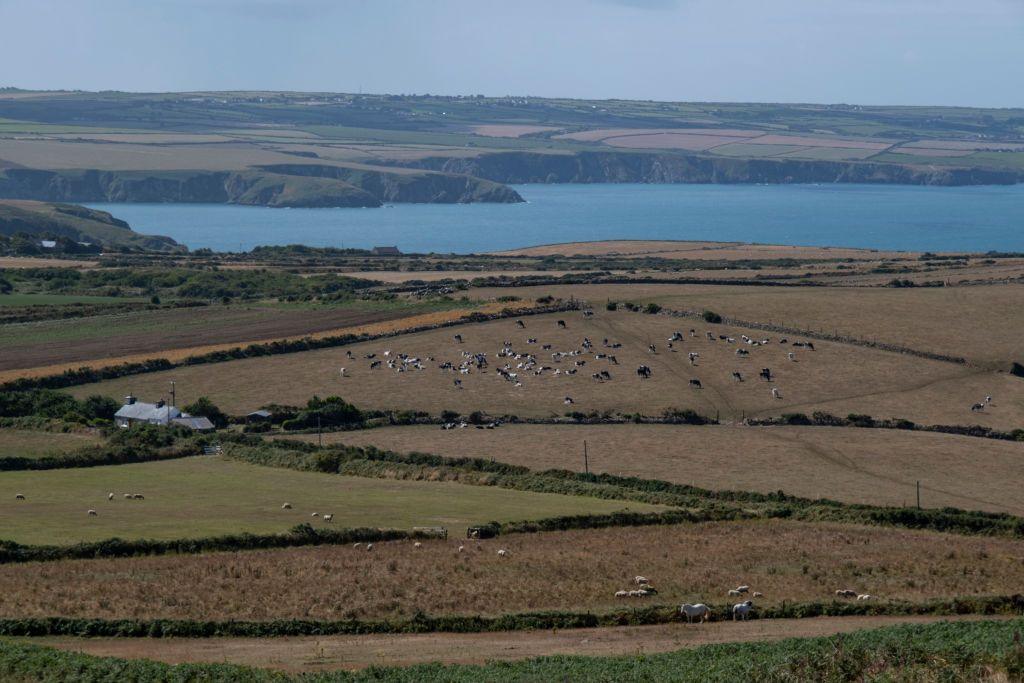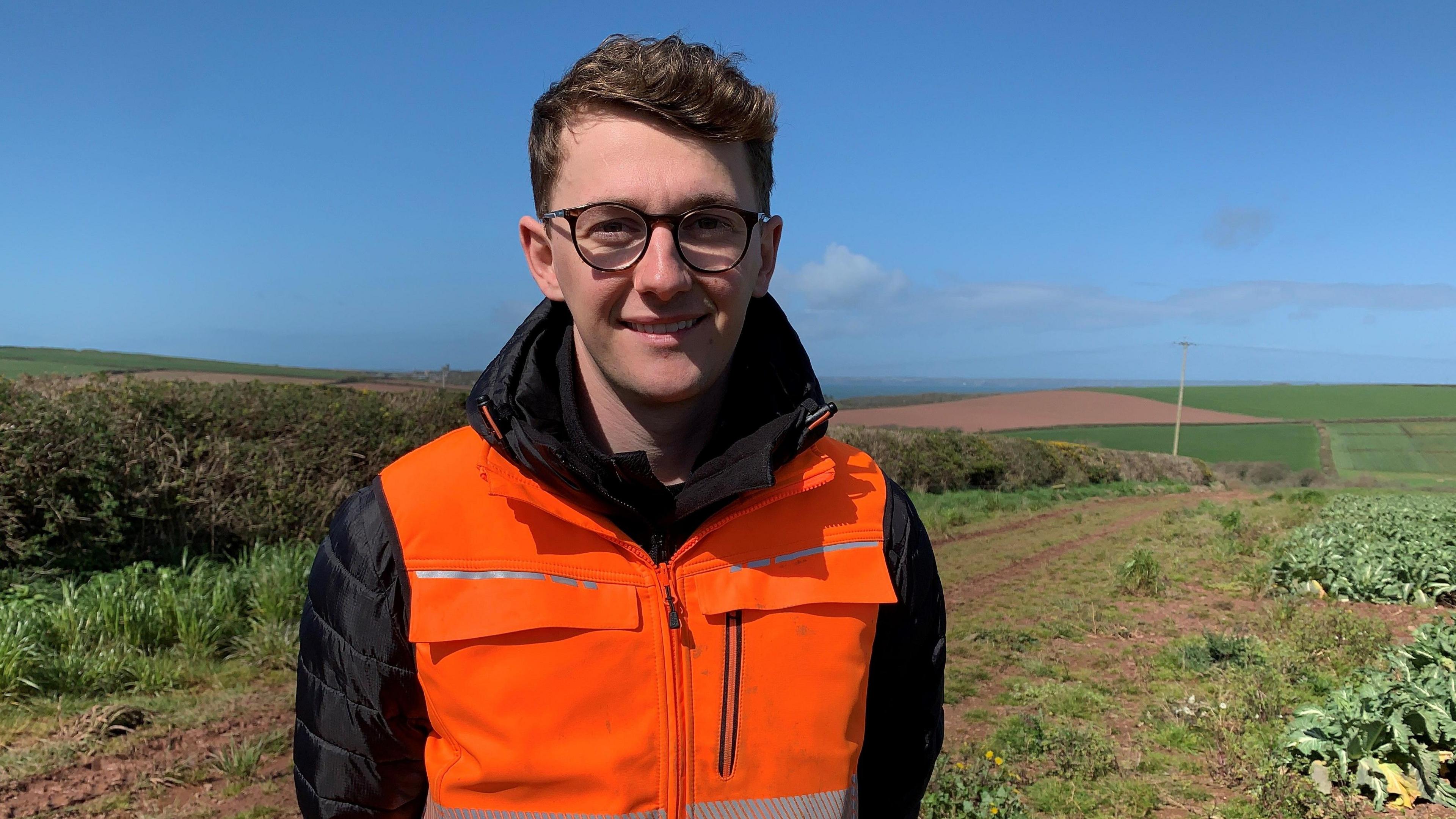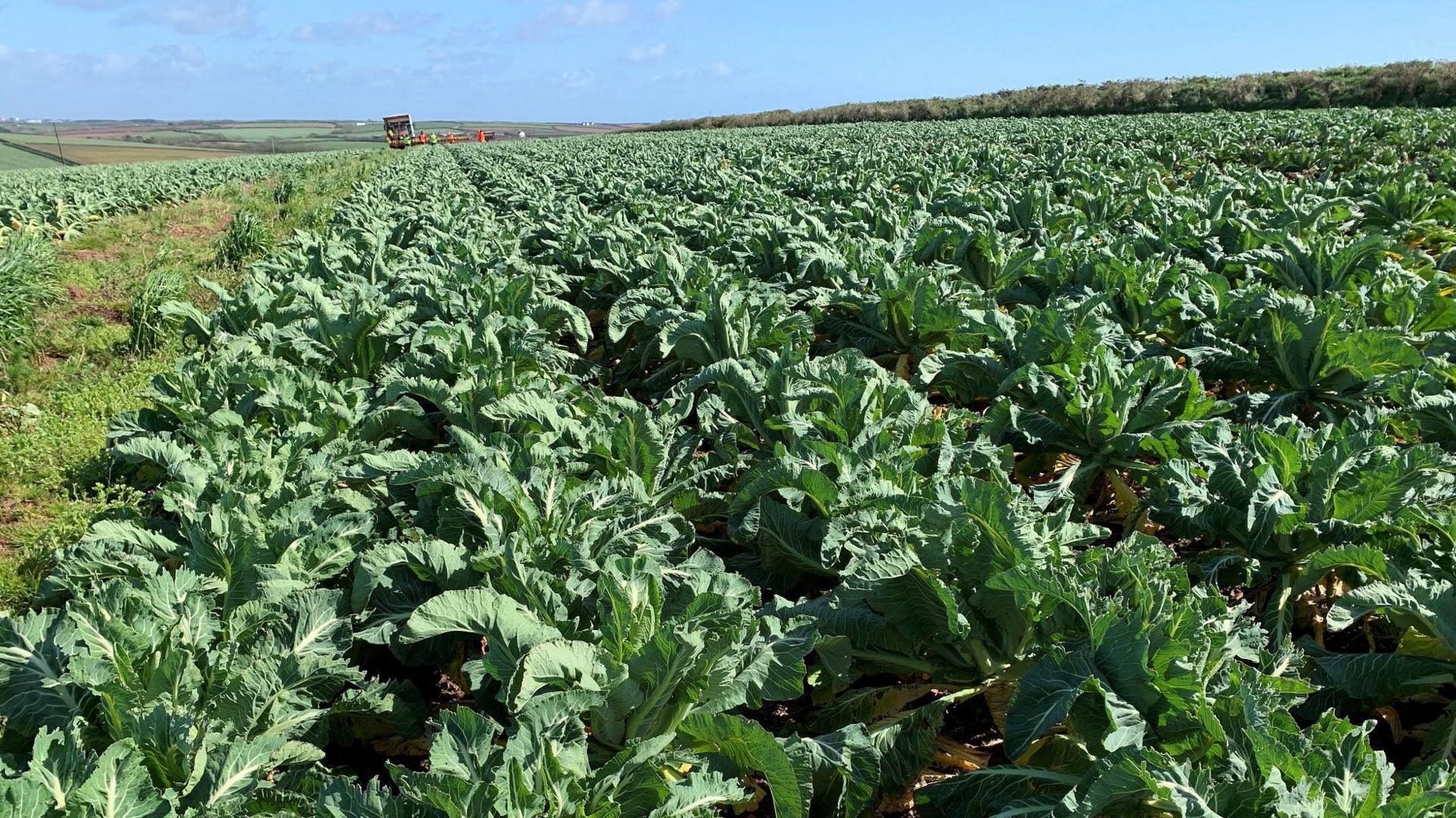Extreme weather costing farmers millions - report

Wales experienced a drought in 2022
- Published
Extreme weather caused by climate change is already costing farmers in Wales tens of millions of pounds, a report has said.
The effects of changing weather patterns cost farmers £175m in 2018 alone, a new report for WWF Cymru estimates.
It means those in the industry need to create a more "diverse and resilient food and farming system" to withstand the pressures of climate change.
Puffin Produce, the largest fresh produce supplier in Wales, said it had been the "most challenging" period in memory.
The Met Office estimates that 27% more rainfall fell in the UK last month compared to an average March.
As the atmosphere warms it can hold more moisture, roughly 7% more per 1°C.
Marc Jones, a farmer at Trefnant Hall Farm near Welshpool, Powys, has about 700 cattle and 800 sheep and said there had been significant extra costs due to the weather.
He said: "I've been farming 20 years and this is the most consistent rain we've had as long as I've been farming.
"It particularly affects the cattle. Due to the wet conditions in the autumn, we had to keep feeding silage throughout and we're also feeding concentrates so probably added between £15,000 and £20,000 to the feed bill for the farm."
Why is it raining so much?
- Attribution
- Published9 April 2024
Firefighters using sewage water to battle blazes
- Published24 August 2023
Wales falling behind on climate targets - report
- Published6 June 2023
Puffin Produce, based in Haverfordwest, Pembrokeshire, provide potatoes and vegetables for the major UK supermarkets but has been hit by the prolonged rainfall.
Farm manager Charlie Felstead said: "We still have potatoes in the ground that were supposed to be harvested last August or September and it's going to be a struggle to get them out.
"We're trying to plant next year's crop. We've only got 20 acres in the ground where there should hundreds of acres in by now.
"Trying to harvest through some of the wettest conditions anyone has ever seen makes it hard for the guys in the field."

Charlie Felstead says there has only been four acres of leeks planted out of the 400 he wants
The report, external by Farmlytics estimates that farmers had to buy an extra £151m of livestock feed in 2018 due to droughts and floods, as well as crop and grass growth.
Experts looked at the impact of the Beast from the East and heavy snowfall in 2018, the summer drought in 2018 followed by Storm Callum, Storm Dennis in February 2020, Storm Ciaran in November 2023 and drought in summer 2022.
An estimated £23.8m worth of lambs were lost in 2018 due to extreme weather while a drought in 2022-23 led to feed cost rises totalling £265m.

Farmers Ross Beynon, Teleri Bowen and Aled Davies have all been hit by bad weather
At the livestock market at Newcastle Emlyn, the wet weather is the only topic of conversation.
Ross Beynon, a beef and sheep farmer from Dryslwyn, said: "It’s been a total disaster if you want the truth. We’ve got a part of our farm that we’ve hardly used since last October, it joins the river."
Teleri Bowen from Trelech said extensive rain meant "the extra cost of purchasing bales for feeding the cattle has been quite extensive and it’s something we don’t really need at this time of year".
Aled Davies from Felinfach said it felt like he had only seen "three or four days of dry weather" since July.
Economist Dr Edward Jones said the extra costs could make Welsh produce less competitive against cheaper imports.
Despite food inflation dropping from 15.7% to 3.7% since this time last year, he said while Welsh farmers "may hope to gain a greater price for their produce, unfortunately, the main food consumers will be buying will be food produced in other countries".
Experts say farmers should consider increasing crop rotations, harvesting rainwater and providing greater tree cover to cope with more extreme weather.
Shea Buckland-Jones, head of policy and advocacy at WWF Cymru, said: "Those who farm in a nature-friendly, regenerative way, are more resilient to the impacts of climate change."
He also said the Welsh government should be supporting farmers to adapt through its sustainable farming scheme.

Puffin Produce workers harvesting cauliflowers near Marloes in Pembrokeshire
The Welsh government said "We want our future generations to continue to produce top quality food in Wales, but they will be farming in very different conditions to today.
"The proposed sustainable farming scheme has been designed to help farmers respond to these challenges and help us to meet our commitments to the people of Wales."
Mr Jones said it would take time for farms like his to adapt by sowing different crops and grasses to survive drier periods and winter and would take "five to 10 years to put a process in place that will work for us".